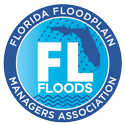What needs to be disclosed? What do you need to know about flood risk and flood insurance? The National Association of Realtors (NAR) sheds some light on these issues in their video “Window to the Law: Flood Insurance & Disclosures: What You Need to Know Now.”
“Remember that flooding can occur anywhere.”
Additional Resources:
NAR’s State Flood Hazard Disclosure Survey
(Mandated property disclosures related to flood hazards for all states)
Video Transcript
Flooding is the most common and costly natural disaster in the U.S., causing more than 1 trillion dollars in damage to crops and property from 2000 to 2018, and that number keeps rising. As a real estate professional, flooding can also impact your business. Flooding is considered a material fact to a real estate transaction, and failure to disclosure flood damage can result in liability. In addition, it’s important to counsel buyers about the need and availability of flood insurance. State laws on flood disclosures vary, so it’s crucial to understand your obligations in the state where you practice real estate. In general, a broker or agent must disclose the following facts when they have actual knowledge: – that a property is in an area where flood insurance is required; – that flood insurance was required in past; – that the property is located in an area that has flooded in the past; – and that the property is located in an area subject to flood risk that may cause many or most owners to purchase flood insurance. In addition to state law, REALTORS® are obligated to disclose flood damage under the REALTOR® Code of Ethics. While REALTORS® must disclose reasonably apparent adverse facts, this duty does not obligate REALTORS® to discover latent or hidden defects in a property. In a recent Texas case, Calhoun v. I-20 Team Real Estate, LLC, an appellate court ruled that a buyer’s agent’s team could be held liable for failing to advise a buyer that additional disclosure from the seller was necessary. While the seller’s disclosure form disclosed that the home had experienced past flood damage, Texas law requires further explanation for any affirmative disclosure. Here, the Seller’s form failed to provide any such explanation, and failed to answer other required questions, including improper drainage; whether the seller had flood insurance; and whether the property is located in a hundred-year flood plain or a floodway. Shortly after purchasing the property, the buyers discovered improper drainage, and that the property had a long history of flooding.
To avoid liability, and to protect your clients: – Know your state’s disclosure laws to understand your obligation to disclose pertinent facts. As a starting point, check out NAR’s state-by-state flood disclosure survey available on NAR.realtor. – Don’t conceal past flooding or water damage. If a seller asks you to conceal those facts, remember you still have a duty to disclose, so be sure to consult with your broker and legal counsel. – Listing agents should ensure a seller’s disclosure form is fully completed, and when representing the buyer, be sure to notify your client of any incomplete disclosure requirements and request follow-up from the seller. Now let’s talk about flood insurance. Keep in mind that a property does not have to be near water to flood. Heavy rain, rising sea and river levels, melting snow, drainage system backups, and broken water mains can all cause flooding. In fact, 25 percent of flood insurance claims occur in low or moderate risk areas. Flood damage is excluded under standard home owner insurance policies, but you don’t have to be in a high risk flood zone to obtain flood insurance. Flood insurance is available from the National Flood Insurance Program and many private insurers.
So, when counseling buyers about flood insurance: – Remember that flooding can happen anywhere. Recommend that buyers to do their own due diligence, but avoid telling buyers that flood insurance isn’t required or advisable. – Provide buyers with a list of reliable third-party resources about the importance of flood insurance, including the floodsmart.gov website. – And, advise buyers to speak with their insurance agent and mortgage lender to determine whether flood insurance is required for the property.



